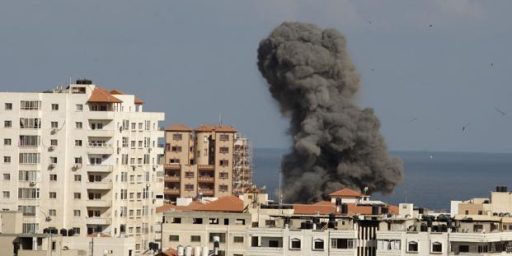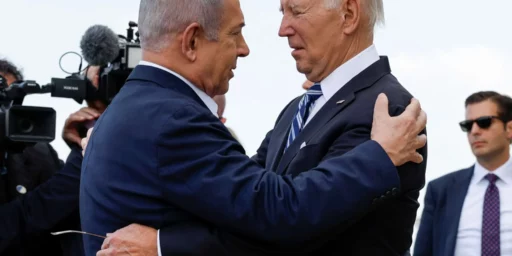Israel’s Intifada Victory
Charles Krauthammer, not known for his sunny optimism, proclaims, “The Palestinian intifada is over, and the Palestinians have lost.” As evidence for this Israeli victory, he notes that, “The overall level of violence has been reduced by more than 70 percent.”
Krauthammer believes this case study has a lot of lessons to teach.
How did Israel do it? By ignoring its critics and launching a two-pronged campaign of self-defense.
First, Israel targeted terrorist leaders — attacks so hypocritically denounced by Westerners who, at the same time, cheer the hunt for, and demand the head of, Osama bin Laden. The top echelon of Hamas and other terrorist groups has been either arrested, killed or driven underground. The others are now so afraid of Israeli precision and intelligence — the last Hamas operative to be killed by missile was riding a motorcycle — that they are forced to devote much of their time and energy to self-protection and concealment.
Second, the fence. Only about a quarter of the separation fence has been built, but its effect is unmistakable. The northern part is already complete, and attacks in northern Israel have dwindled to almost nothing.
This success does not just save innocent lives; it changes the strategic equation of the whole conflict.
Of course, Israel is fighting on a much more contained battlefield. They know precisely who their enemies are and where they live. The US can’t very well build a wall that would shield us from our enemies, given both our comparative vastness (for comparative purposes: Israel would fit in Ted Turner’s backyard).
Still, we can and have hardened some key targets. Highjacking a commercial airliner or bringing a suitcase bomb into a federal building are much harder than they were two years ago.
Killing the terrorist leaders is also a more daunting task when one’s enemy is a global jihadist network rather than a handful of Palestinian irredentists. We’ve been looking in vain for bin Ladin for years. Still, we’ve “otherwise dealt with” dozens of key al Qaeda leaders and, while we’ve barely made a dent in the movement, we do seem to have disrupted their ability to plan 9/11-scale operations. It’s simply harder to plan attacks when you are hiding in a different spider hole every night, unable to show your face in public, and can’t use your cell phone. It’s even harder if you’re dead. (It’s true–look it up.)






Are you suggesting that Palestinian terrorists are actually radioactive dental health care professionals?
Are you some kind of anti-dentite?
The fence, which Mr. Krathammer is so enthusiastic
to see completed, is also the snake moving through
occupied Palesting territory designed to prevent
the Palestinians from ever having a viable state.
With tht ending of the intifada, Palestinians were
hoping to see further fence construction halted and an end to the seige of Yasser Arafat. Mr. Arafat gave up on the idea of his seeing an end to the Jewish state
even before he signed a pledge to that effect at the Oslo conference. He has been loudly emploring dissidents to end the intifada
so that he might enjoy harmony and the
possibility of reaching an accord freeing Palestinians from occupying forces.
With the ending of the intifade Mr. Krathammer should turn his tank around and head for the barn.